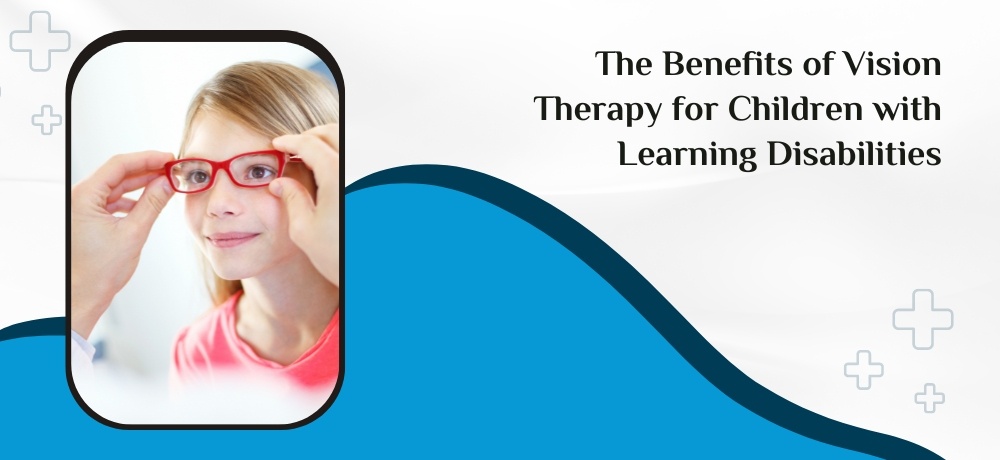The Benefits of Vision Therapy for Children with Learning Disabilities

Learning disabilities can present significant hurdles for children, affecting their academic progress, self-esteem, and overall development. While various interventions and support systems are available, one approach that has garnered recognition and success is vision therapy. Vision therapy offers targeted exercises and activities to improve visual skills and address underlying visual issues that may contribute to learning difficulties. InDepth Vision offers various services, including routine eye exams and emergency eye care. Vision therapy provides a solid foundation for maximizing learning outcomes by identifying and strengthening areas of weakness. This blog explores the advantages of vision therapy for children with learning disabilities.
1. Enhanced Visual Skills at Eye Care Milton
Vision therapy targets visual skills that may be impaired in children with learning disabilities. Vision therapists aim to improve eye tracking, focusing, depth perception, and visual processing through a personalized program of activities and exercises. Strengthening these skills can enhance a child's ability to read, write, and comprehend information more effectively. Vision therapy provides a foundation for improved learning outcomes by addressing underlying visual issues.
2. Improved Academic Performance
Vision problems can significantly impact a child's academic performance. Difficulties in reading, writing, and concentrating may arise from visual deficits that are often overlooked. Vision therapists address these issues by improving visual efficiency and accuracy, leading to better reading fluency, comprehension, and overall academic achievement. With enhanced visual skills, children can process information more efficiently, follow along with classroom activities, and engage in academic tasks with greater confidence and success.
3. Enhanced Attention and Concentration
Children with learning disabilities often struggle with attention and concentration, making it difficult to stay focused on tasks for extended periods. Vision therapy can help improve attention and concentration by training the eyes and brain to work together more effectively. By reducing eye strain, visual fatigue, and visual processing inefficiencies, children can sustain their attention for longer, leading to increased productivity and improved classroom performance.
4. Enhanced Visual-Perceptual Skills
Visual-perceptual skills are crucial for various learning activities, such as reading, spelling, understanding spatial relationships, recognizing letters and words, and organizing information. Optometrists help develop and enhance these skills, allowing children to interpret visual information better and make connections between concepts. By strengthening visual-perceptual skills, children can improve their ability to comprehend and remember what they see, ultimately enhancing their overall learning abilities and problem-solving skills.
5. Boosted Confidence and Self-Esteem
Learning disabilities can take a toll on a child's self-confidence and self-esteem. Struggling academically or feeling different from their peers can lead to feelings of frustration and inadequacy. Vision therapy allows children to overcome visual challenges and improve their learning abilities. As their visual skills improve, children gain confidence in their academic performance, positively impacting their overall self-esteem.
6. Vision Issues and Misdiagnosis of Learning Disabilities
In some cases, individuals with learning disabilities, ADHD, dyslexia, and similar conditions may also experience vision issues that manifest with similar symptoms. This can often result in misdiagnoses, where the vision problem is mistaken for a learning disability, ADHD, dyslexia, or other similar conditions. However, when a person genuinely has a learning disability, ADHD, dyslexia, etc., the presence of a vision issue can further hinder their ability to compensate for these conditions.
Vision therapy clinics offer significant benefits for children with learning disabilities. By targeting specific visual skills, enhancing academic performance, improving attention and concentration, developing visual-perceptual skills, and boosting confidence, vision therapy provides a comprehensive approach to addressing the underlying visual issues that can hinder a child's learning abilities. If you are looking for the best Vision therapy clinic for your children, then contact InDepth Vision. Optometric Vision Therapy is an area of optometric care that focuses on developing, improving, and enhancing an individual’s visual performance.
Get in touch with us today
To learn more about what we do, please click here. To contact us, please click here or call us at (905) 876-6042.